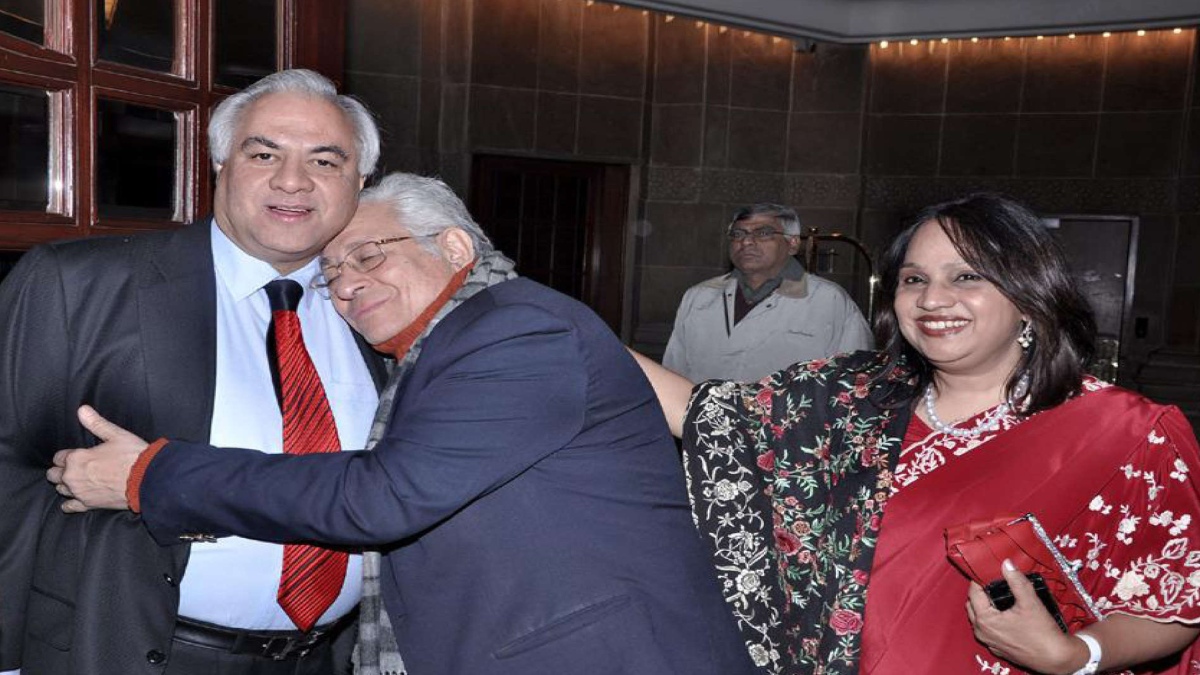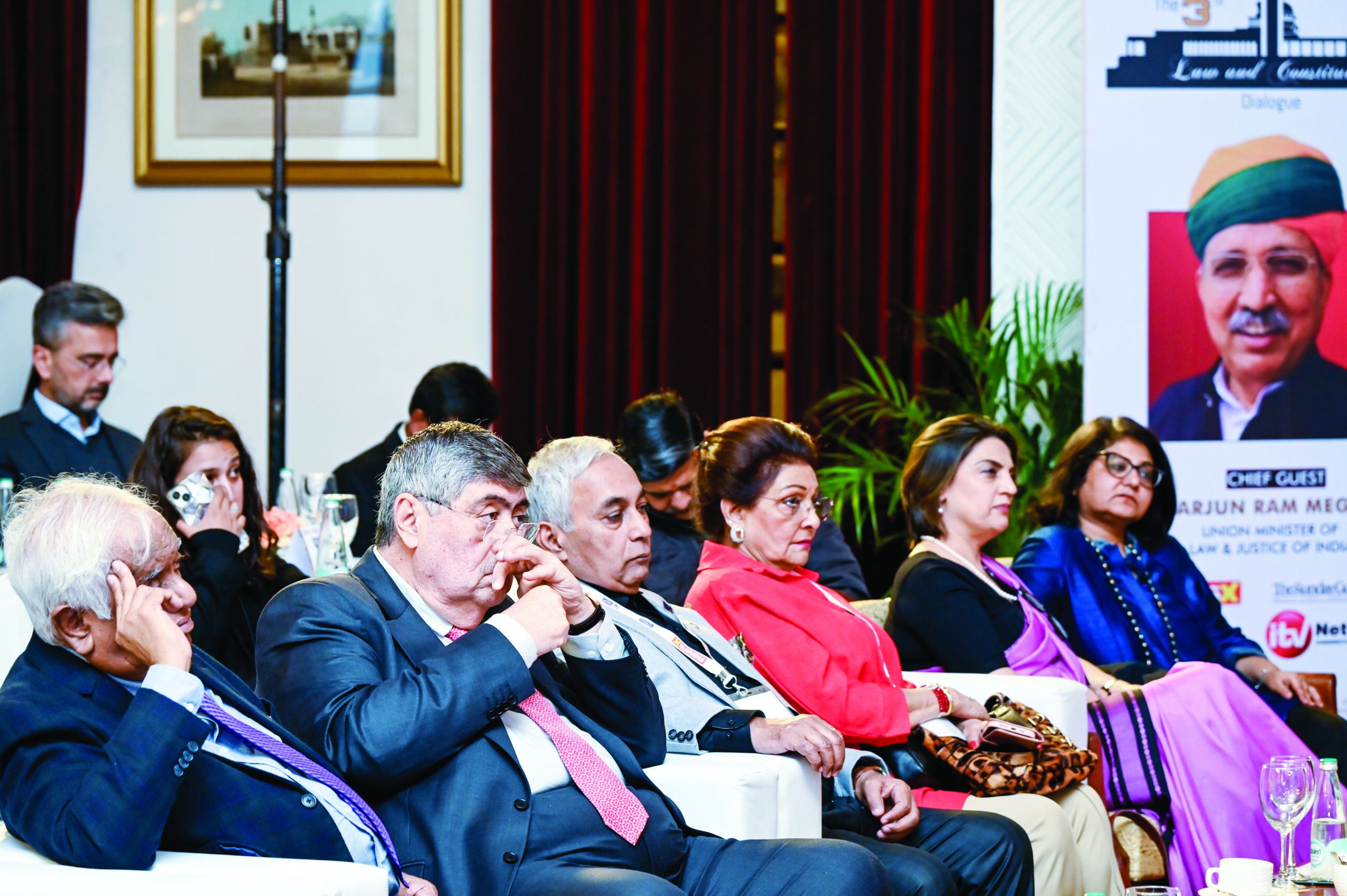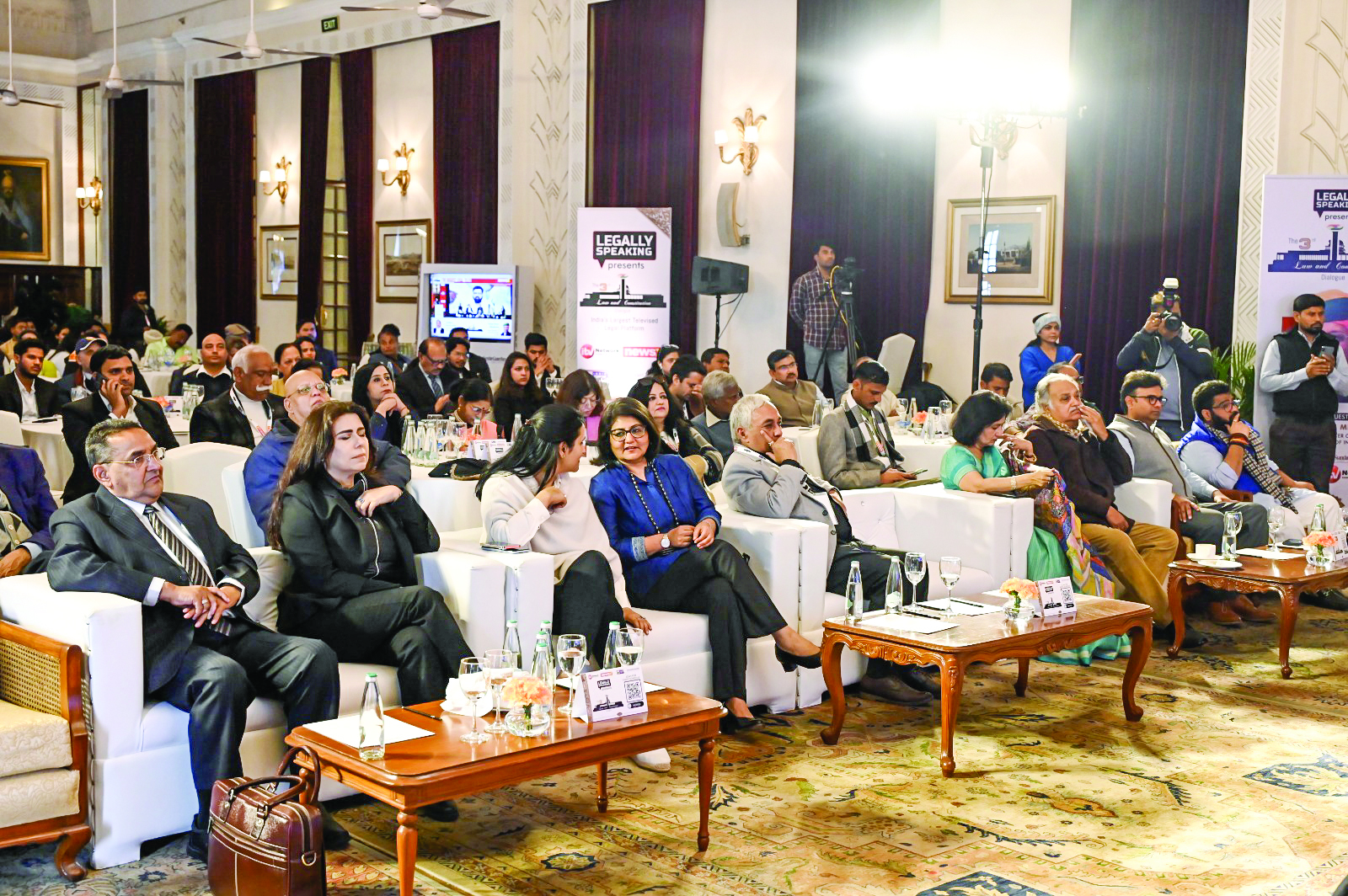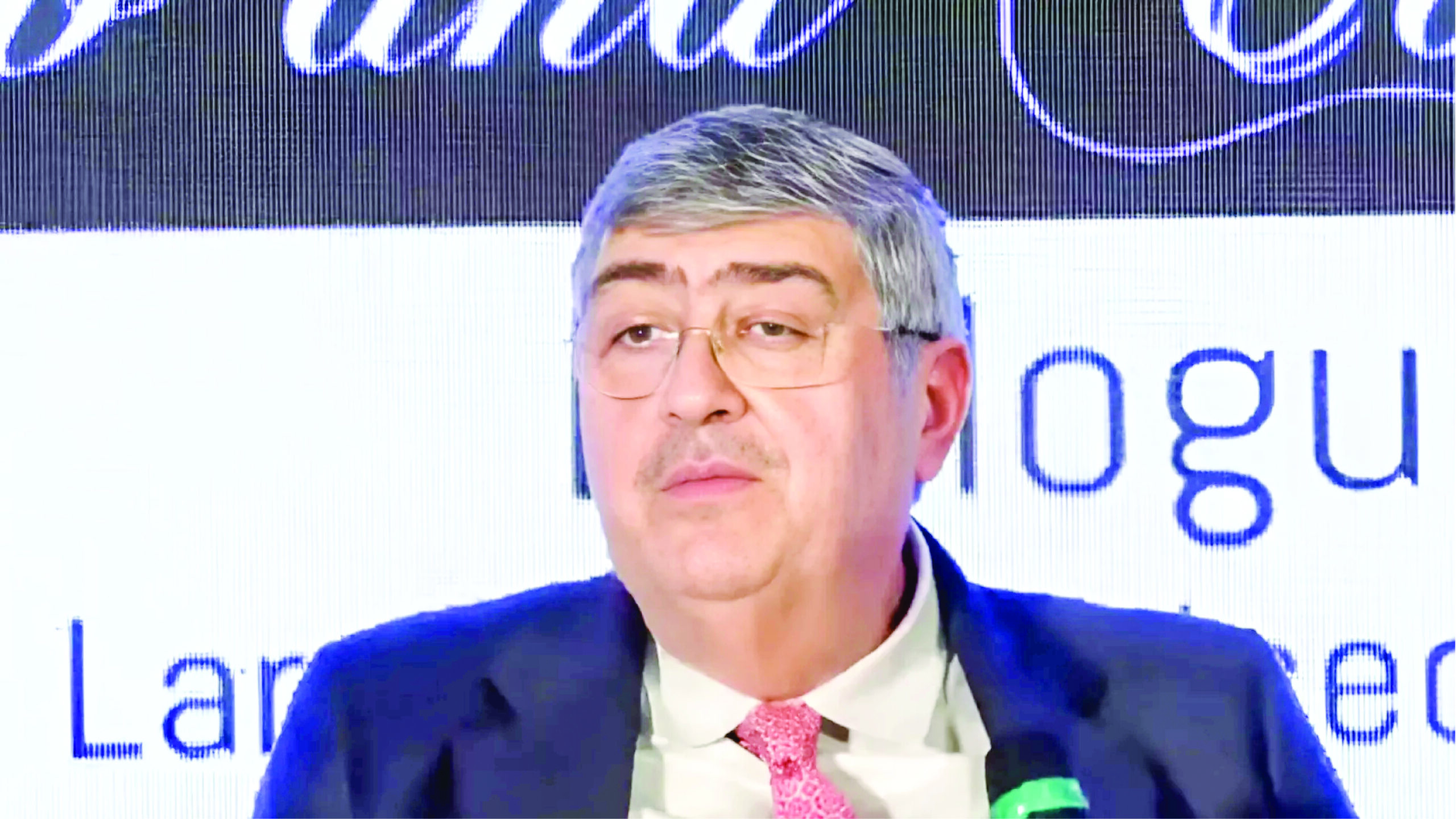I saw him for the first time in 1976. Mukul (Rohatgi), Tony (Anip Sachthey), and I had gone to St. Xavier’s College to hear him speak. Those were the Emergency Days, and India was in a different kind of lockdown. Soli came to speak against the Emergency in the lawns of St. Xavier’s and the audience was large and very attentive. Even now, so many years later, his words ring out. Discipline, he said, was not trains running on time (a popular slogan of that era), but the proper adherence to democratic norms. His speech was warmly received and, even then, I remember admiring both his clarity of thought as also his courage. I later learnt that, though born to great wealth, Soli was always striving for something bigger. Not for him the life of the easy rich (he had a fleet of race-horses as a child). He took to the law. He joined Jamshedji Kanga’s Chamber and competitively (some say too competitively) worked his way to the very top. But, combined with law, was a sense of public spirit that drove him to speak out against the injustice of the moment. So, this is how he came to Xaviers’ that day.


 Justice Y.V. Chandrachud
Justice Y.V. Chandrachud Raian Karanjawala with Soli Sorabjee.
Raian Karanjawala with Soli Sorabjee. Zia Mody – Soli Sorabjee’s daughter Zia Mody, is the founding partner of India’s leading law firms AZB&Partners, his son Jehangir is a doctor.
Zia Mody – Soli Sorabjee’s daughter Zia Mody, is the founding partner of India’s leading law firms AZB&Partners, his son Jehangir is a doctor. Morarji Desai – Soli Sorabjee served Additional Solicitor General in Morarji Desai Government.
Morarji Desai – Soli Sorabjee served Additional Solicitor General in Morarji Desai Government. Raian Karanjawala & Family with Soli Sorabjee.
Raian Karanjawala & Family with Soli Sorabjee. Raian & Manik Karanjawala with Soli Sorabjee.
Raian & Manik Karanjawala with Soli Sorabjee.
Jehangir Sorabjee.

Soli’s son Hormazd Sorabjee is Editor, Autocar India
When I next saw Soli, it was in the corridors of the Supreme Court in August 1979. In 1977, the Congress Government had been voted out and Soli came to Delhi as the Additional Solicitor General in Morarji Desai’s Government. I finished law from Bombay and shifted back to Delhi in 1979. I had joined P. H. Parekh & Company, which had a pre-dominantly Supreme Court practice, and therefore, bumping into Soli in the corridors of what was affectionately referred to as “Chandrachud’s Court” was a common place occurrence. It was that year that I heard Soli, in what I thought was one of his most memorable Court appearances. This was in the Chief Justice’s Court and the case involved the cancellation of Sanjay Gandhi’s bail. Sanjay had come to argue it himself and the matter was to come up at 2 o’ clock, post lunch. Sanjay had come and sat in the Court about 20 minutes early and, when I walked into Court, he was already there. Coincidently, Palkhivala also had another case in the same Court, and I remember him asking Sanjay what brought him to Court. Sanjay explained, and asked Palkhivala, if he was appearing against him, to which Palkhivala immediately clarified that he was not. Shortly thereafter, Soli entered, sat in the front chair and, then a little later, the matter began. It was his powerful advocacy that won the day, and the matter was bitterly fought, but ultimately Sanjay’s bail was cancelled.
Once the Congress came back to power in 1980, Soli stayed on in practice in the Supreme Court, and it was then that our real professional interaction began. The Firm I was working at had several cases in the Supreme Court on a daily basis. Every morning at 8:30, we were busy holding conferences with the top Counsel of that era, namely – Fali, Soli, V. M. Tarkunde, Anil Divan, P.R. Mridul, Dr. Y. S. Chitale, and a young Kapil Sibal. I recollect being at Soli’s office every second day, and the conferences were quick and sharp. His pick-up was like lightning and he got to the heart of the matter within minutes. He had a unique style of making his short notes on the inside page of the back-cover, and a few notes would suffice for him to be able to argue the case at length. His advocacy was more to the persuasive than the hard hitting, a contrast in style with Fali (his great rival) at the Bar. I remember J. Bhagwati telling me that Soli had one of the subtlest of minds that he had come across at the Bar. My interaction with Soli greatly increased post my marriage to Manik, as he was a great friend to and admirer of my father-in-law. In fact, when my father-in-law had filed one of the Writ Petitions in his own name, in what was known as the “First Judges Case”, Soli was his lawyer. So, from the early 80s’ to 1989 till he became Attorney General, my office and I were in constant and regular touch with his Chamber in one matter or the other.
It was in the year 1987 that the Supreme Court constituted the “Fairfax” Commission, headed by J. Thakkar and J. Natrajan. In the course of their proceedings, they issued an 8B notice to Mr. V.P. Singh, former Finance and Defense Minister of India. Arun (Arun Jaitley) who, along with the Indian Express group was advising Mr. Bhure Lal, called and asked if I could organize Soli appearing for V.P. I enquired, Soli readily agreed and that is how V.P. became Soli’s client. The Commission, which proceeded, ultimately did not come to any real conclusion.
The case mentioned in the above paragraph constituted the background for Soli’s 1st Attorney Generalship. I remember, in 1989, when V.P.’s Government was formed, there was a move by Mr. Dinesh Goswamy, the Law Minister to suggest the name of Mr. Shanti Bhushan. However, ultimately the scale tipped in Soli’s favour and I remember sitting late in the evening in V.P.’s South Block Office alone with him, when he made the call to Soli asking him to accept the A.G.’s post. To Soli’s eternal credit, the team he picked was one of the finest teams of Law Officers ever:
a) Mr. Ashok Desai was the Solicitor General (later to become our Attorney General);
b) Mr. Santosh Hegde was the 1st Additional Solicitor General (later to become Judge of the Supreme Court of India);
c) Mr. Prashant Goswamy was an Additional Solicitor General;
d) Mr. Kapil Sibal was also appointed as an Additional Solicitor General (later to become one of our most prominent ministers in the U.P.A. Government); and
e) Mr. Arun Jaitley was also appointed as an Additional Solicitor General (later a Minister in the Vajpayee Government and the Finance and Defense Minister in the Modi Government).
Not only did Soli constitute an excellent team, but he also stood by his team. When a senior Minister in the V.P. Singh Government raised an objection to Mr. Kapil Sibal’s name, Soli sent a message back that then the whole team would step down. Needless to say, things ended there.
Soli again became Attorney General (the only man to have this distinction under two separate Governments) and, on this occasion, had Mr. Harish Salve and Mr. Mukul Rohatgi as part of his team.
I also think it is appropriate to emphasize one other aspect of his personality. His role as a Chamber Senior and teacher. This was the only Chamber I know that consistently turned out and developed outstanding Counsel. In Bombay, there was Arshad Hidayatullah and S. Ganesh; in Delhi, Harish Salve and Gopal Subramaniam. His mentoring was of an exceptional nature and all those who worked with him benefitted greatly from his guidance.
No article of 1200 odd words can really do justice to the man. Born to great wealth, he chose the life of the hard slog; he was blessed with both an exceptional mind and also a phenomenal memory. He could take you to the relevant paragraph of a judgement. He had an acutely developed sense of public spirit, and the raw courage to stand up for what he believed in. Authority did not scare him and whenever the good fight had to be fought, he was there on the side of the right. He was also a man who could not quite be shackled, and I remember the words of his son, Hormazd three days ago to me, when he told me that Soli had Covid, that till the end he refused to listen and went to the I.I.C. regularly. He enjoyed the company of the old and the young, and was extremely sentimental and would cry at the drop of a hat. He was also very fond of Jazz, and Harish and his early bonding was also because of their common interest in that form of music. On a personal note, he was always kind to me and my family, especially my wife Manik, and spent timeless hours as the Chairperson of the Tarkunde Memorial Lectures. He lived a full 90 odd years.
Travel well Soli.












